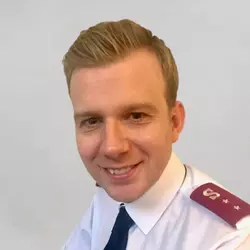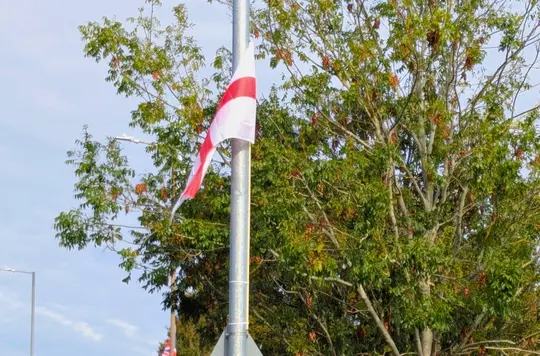10 February 2024
How should Christians talk about peace?
Captain Ben Cotterill

As the Israel-Gaza conflict continues, Captain Ben Cotterill highlights the need for non-polarised thinking in our interactions.
As a corps officer, I once felt compelled to help two influential corps members reconcile their apparent long-held differences. The meeting went better than expected. After having listened to each other, they willingly apologised, agreed how they could co-exist and even shared an embrace.
‘They’ll be sending you to the Middle East next!’ someone quipped. The tongue-in-cheek comment was obviously not meant literally as, of course, the complexities of the current conflict in the Middle East are incomparable to the falling out of two church members. Yet the comment has stayed with me as a sad reminder of the surrounding perennial tensions and unresolved issues.
I studied politics and international relations for five years at university and still I feel inadequate to really understand the intensity and complexity of the situation in Israel and Gaza. What I am continually reminded of, though, is that nuance is important when trying to talk about or describe what is happening, but it is often ignored in our increasingly black-and-white, polarised world.
The impact of social media has not helped. ‘Whataboutery’ (as in ‘what about…?’) has been rife, as people do not answer questions and instead reply with counter-accusations. It’s like people are speaking in echo chambers surrounded only by people who reinforce their own views.
In 1905, General William Booth visited Jerusalem and Jaffa, and his trip was documented in the War Cry. Booth’s address was to what must have been a rather unique gathering of Syrians, Arabs, Jews and Christians in Jaffa. The trip culminated in Booth’s arrival on the Mount of Calvary, where the Army flag was unfurled before he led onlookers in prayer.
I wonder what Booth’s prayer would be today. I think he would have called the Army to pray, just as General Lyndon Buckingham has called us to pray, for peace and for all those caught up in the conflict. Booth’s prayer might have echoed that of Pete Greig, the founder of the 24/7 prayer movement, who has encouraged people to pray for the grieving, for miraculous de-escalation and for effective peacemaking. We look to Jesus who said: ‘Blessed are the merciful, for they will be shown mercy... Blessed are the peacemakers, for they will be called children of God’ (Matthew 5:7–9).
I hope we will remember that everyone involved – and everyone we speak to about the conflict – is made in the image of God. I believe to become a peacemaker – or, indeed, to overcome an issue involving two or more sides – we need to make the language of the other side like our first second language. By that I mean people need to hear the opposite side’s experience and understand how and why they communicate as they do.
The 13th-century Persian poet and Islamic scholar Rumi once wrote: ‘Beyond ideas of wrongdoing and rightdoing, there is a field. I’ll meet you there.’ Whatever we disagree on in life, politically, ideologically or religiously, we must recognise our mutual humanity.
The Jewish theologian Martin Buber is also well known for his work on the meaningfulness of relationships. He said we must learn to see people as sacred beings and see others as ‘thou’ not as ‘it’.
Relationships can be deepened, sustained and healed if we can see each other in more reverent ways. I wonder how this might become a reality for us and the people we disagree with. You might have experienced the challenge of this over recent events with friends, family or even in your church. But how much more this is needed right now.
Reflect and respond
- Pray for peace in the Middle East.
- Pray for all those affected by this conflict and other conflicts around the world.
- Pray for those who have lost loved ones.
- Pray for peacemakers.
- How can you be a peacemaker in your community?
Written by

Captain Ben Cotterill
Development Officer, Tanzania











